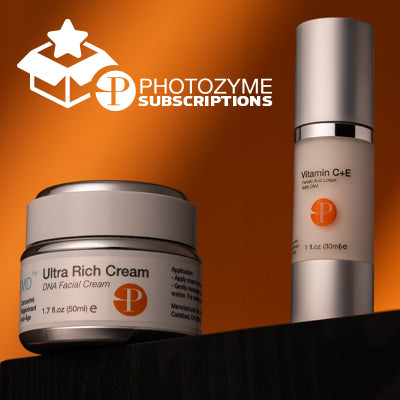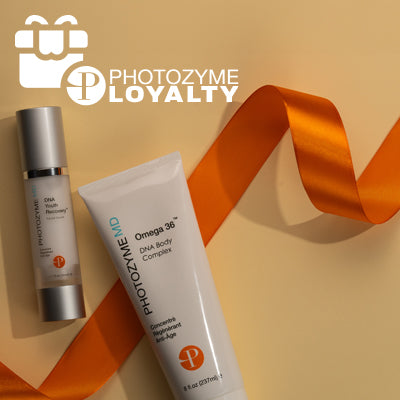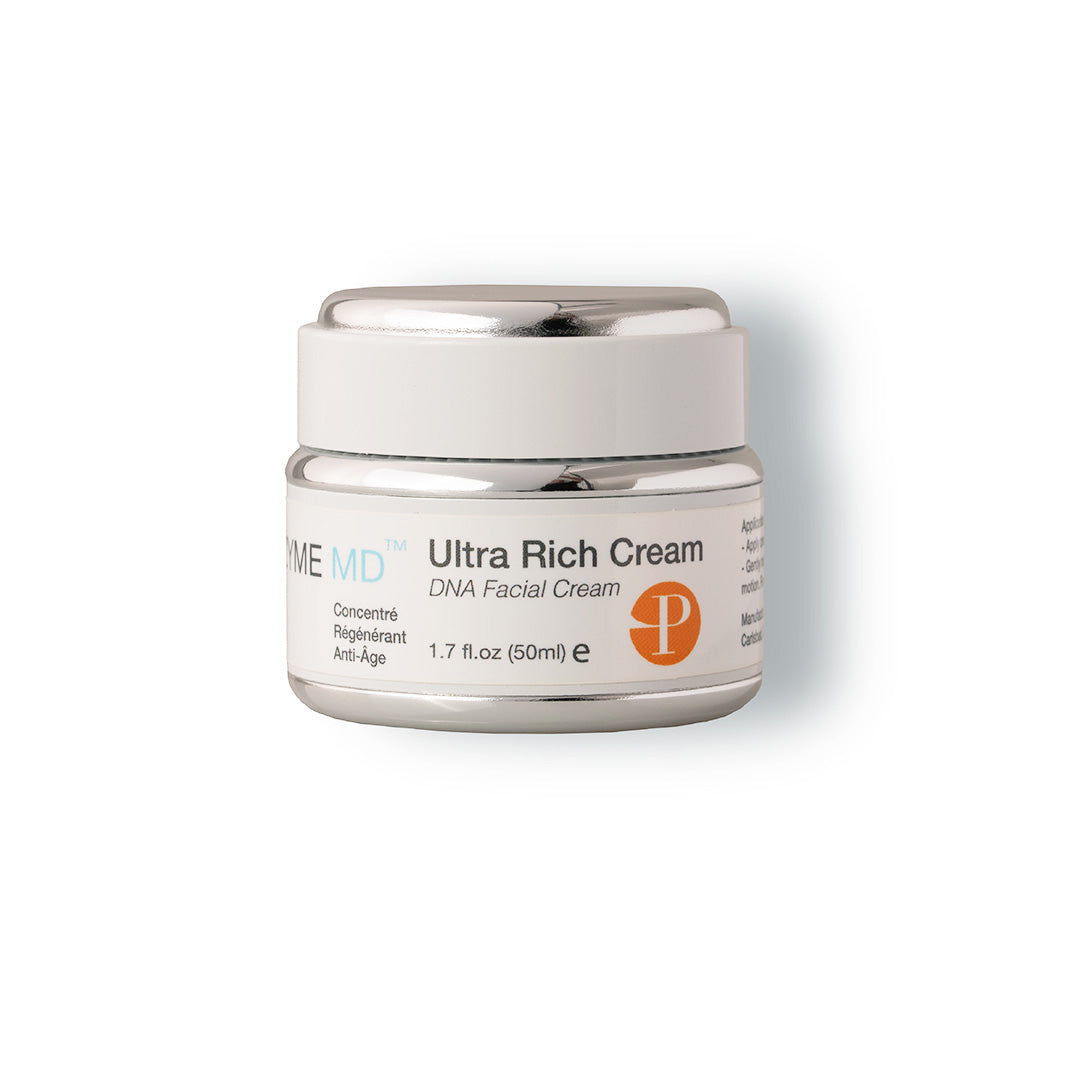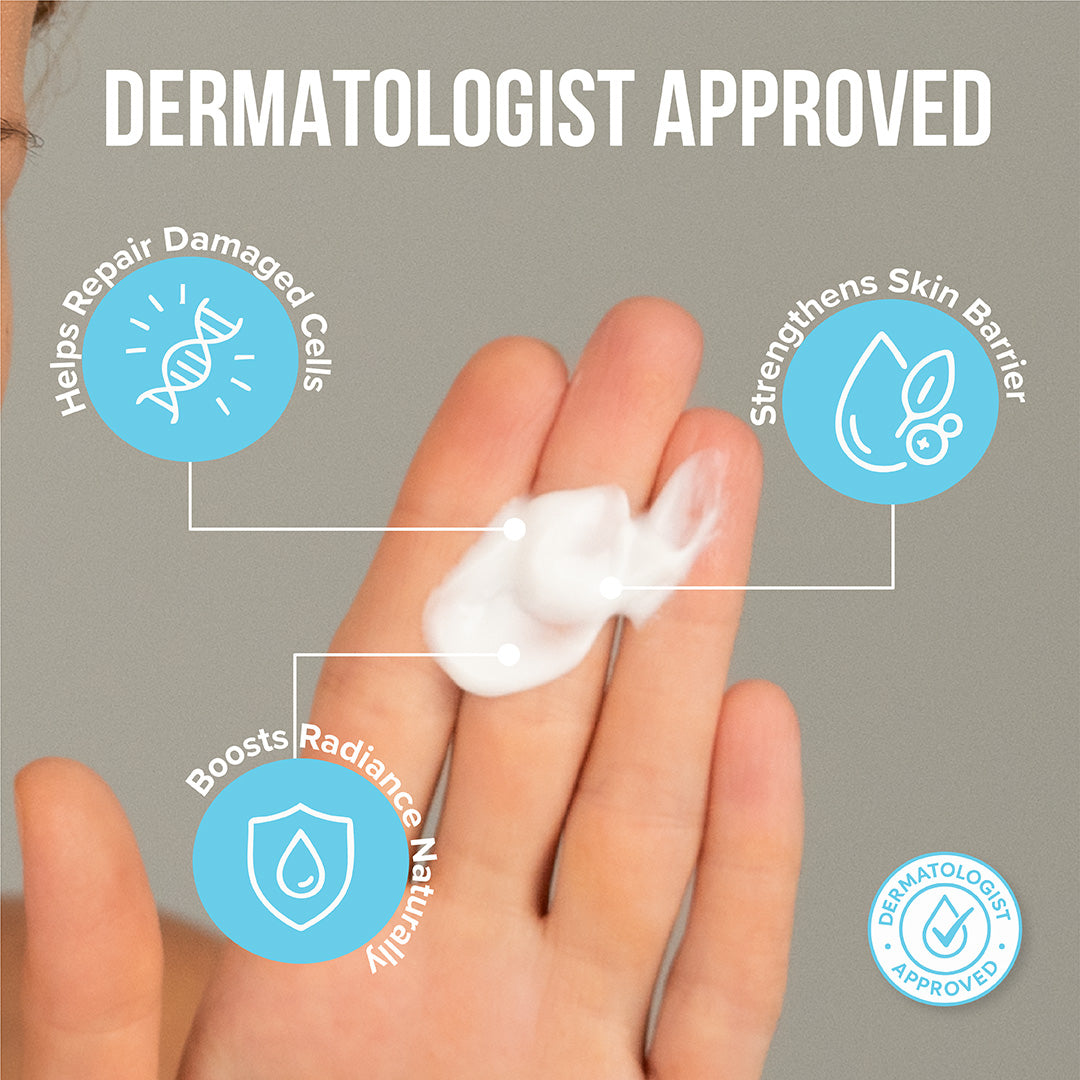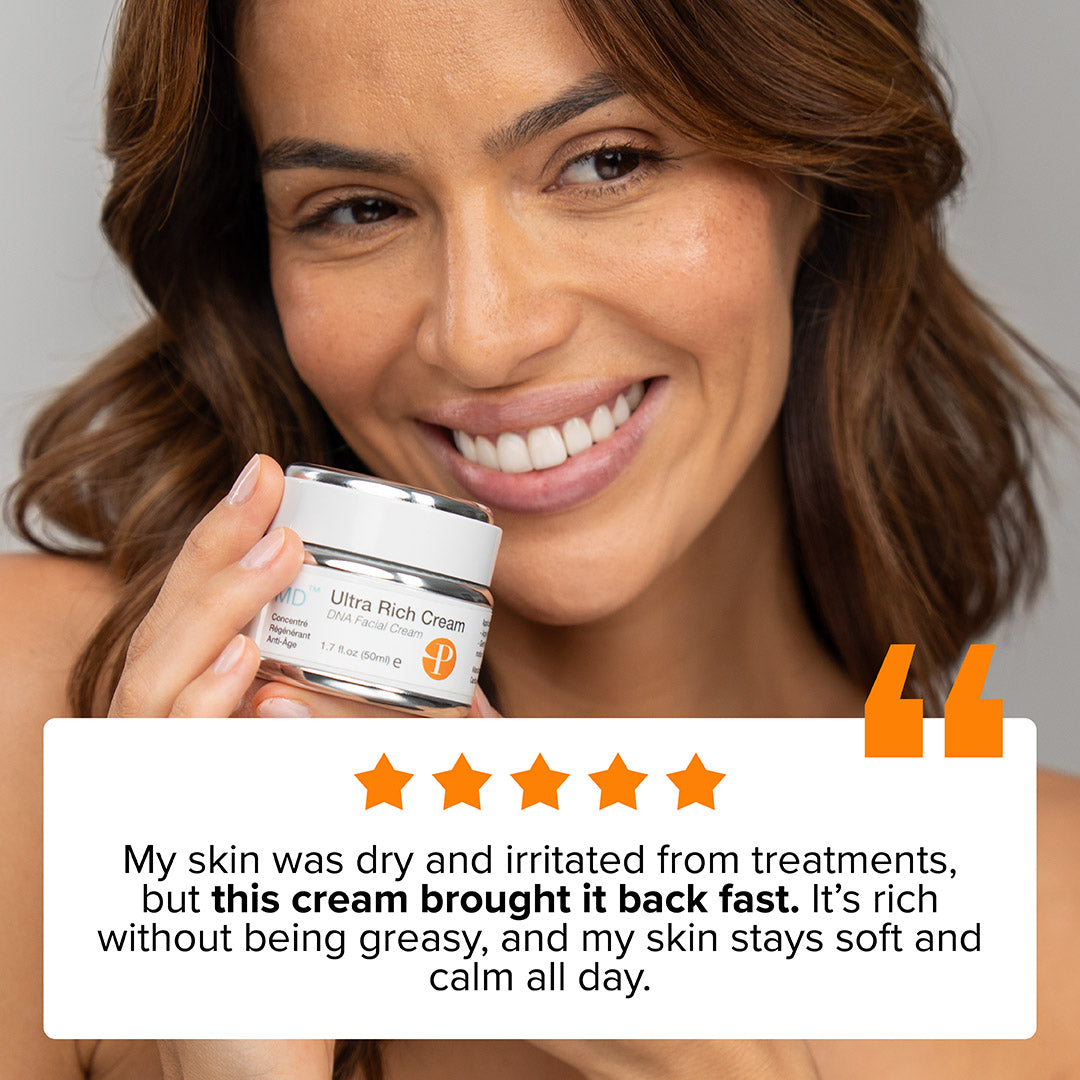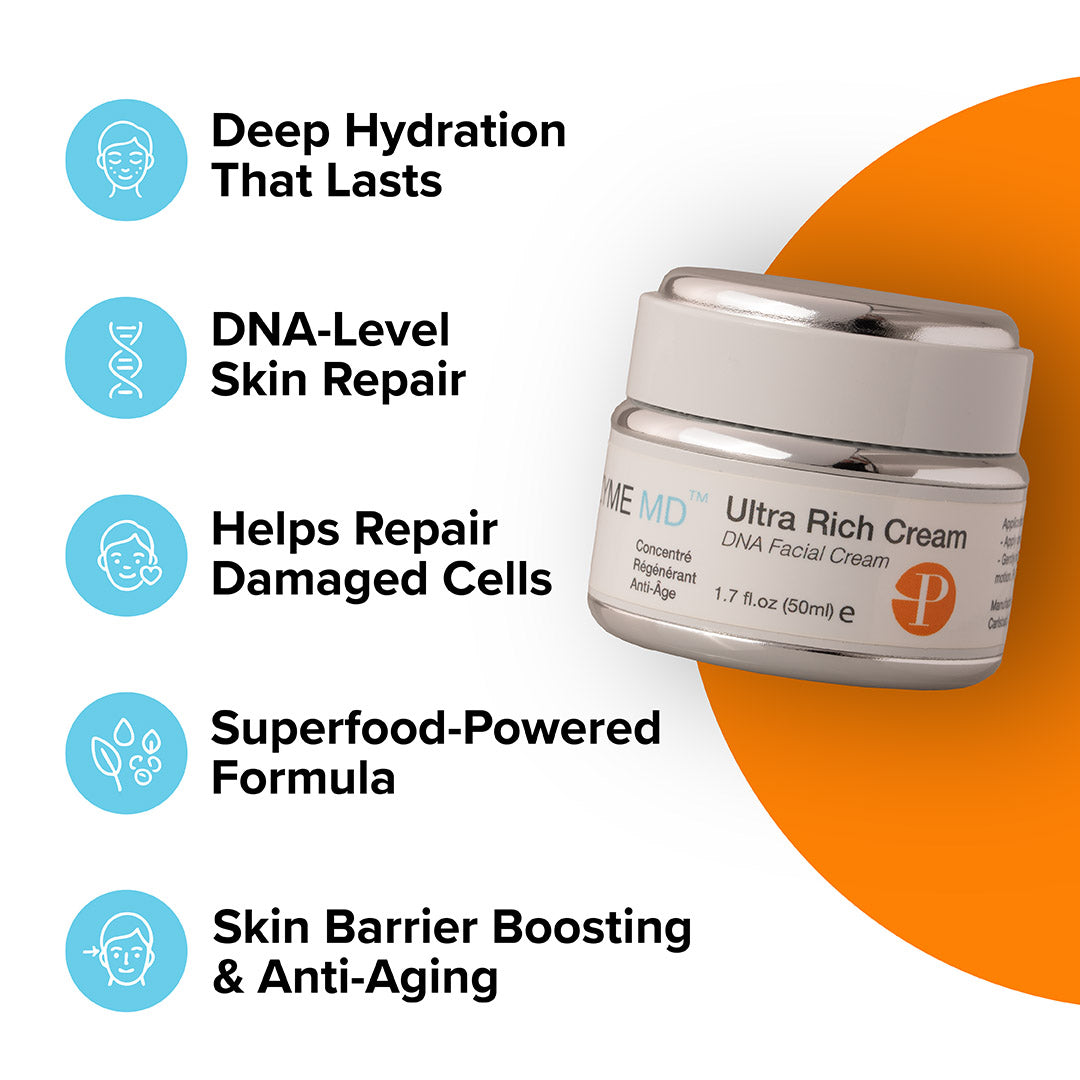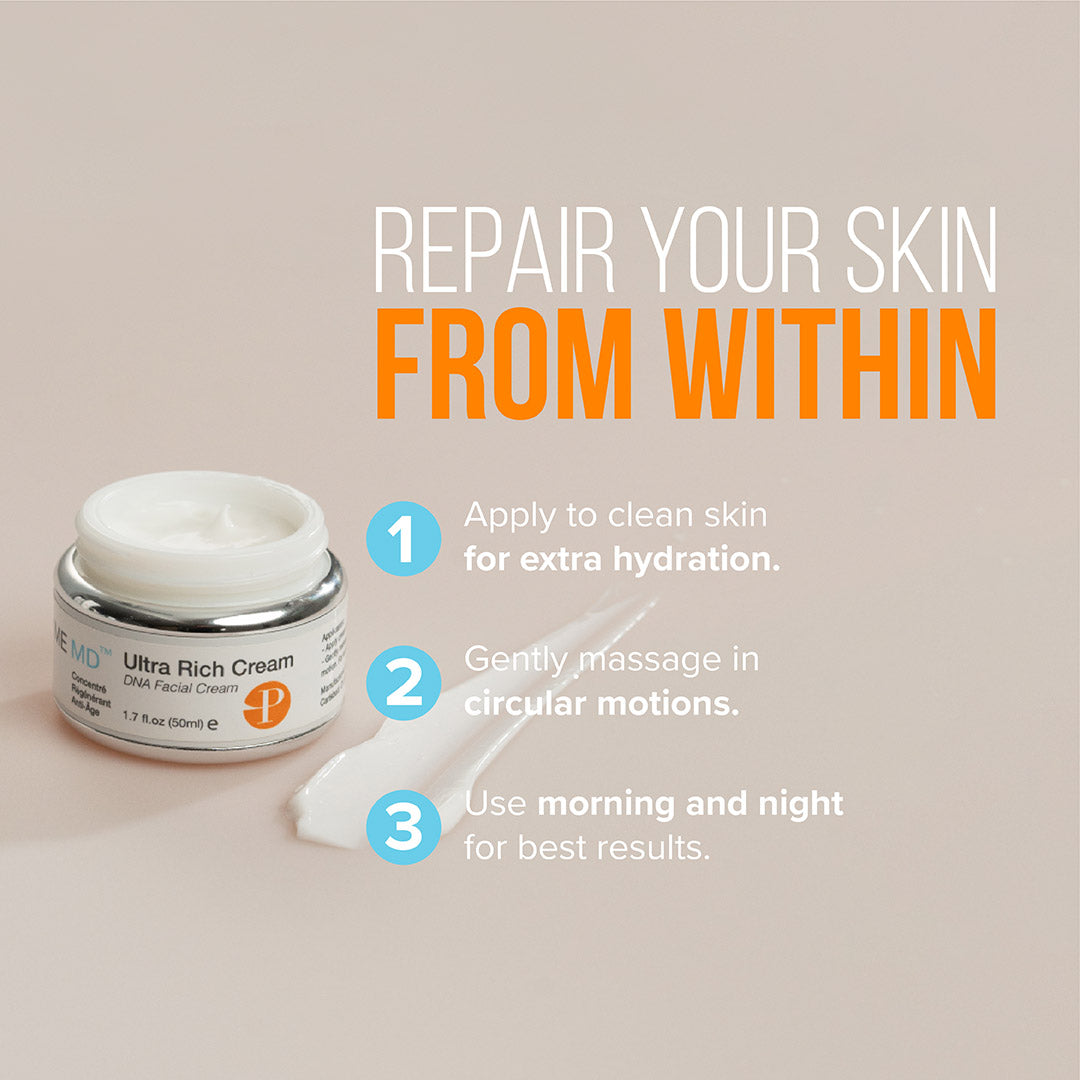This store requires javascript to be enabled for some features to work correctly.
Best Hydrating Face Cream
Ever feel like no matter how much moisturizer you use, your skin still feels tight, flaky, or irritated by mid-afternoon? You’re not alone. Dry, dehydrated skin isn’t just uncomfortable—it can throw off your entire skincare routine, making makeup look patchy, speeding up signs of aging, and leaving your skin vulnerable to damage.
Ultra Rich DNA Facial Cream 1.7 fl oz
This luxurious moisturizer is designed to nourish and hydrate skin, restore skin barrier properties and add additional anti-aging benefits to your skin health regimen. Rich in Superfoods, this buttery blend of our proprietary DNA repair enzymes, antioxidants and other plant based nourishing ingredients that melt into the skin and provide optimal hydration. Clinically proven to moisturize the skin and treat photodamage.
Benefits
- Hydrates even the most dry and dehydrated skin
- Packed with DNA Repair Enzymes to fight against photodamage
- Rich in Superfoods (Jojoba, Soybean, Shea Butter, Passion Fruit, Açaí, Green Tea) supplying your skin with a broad mix of antioxidants and fatty acids
- Restores skin barrier properties and adds additional anti-aging benefits
- Enhances and maintains the results of facial procedures
Ingredients
WATER, VEGETABLE GLYCERIN, STEARIC ACID, MYRISTYL MYRISTATE, CETEARYL ALCOHOL, CETEARETH-20, GLYCERYL STEARATE, SODIUM HYALURONATE, SIMMONDSIA, CHINENSIS (JOJOBA) SEED OIL, GLYCINE SOJA (SOYBEAN) OIL, CETYL ALCOHOL, ACRYLATES/C10-30 ALKYL ACRYLATE CROSSPOLYMER, BUTYROSPERMUM PARKII (SHEA) BUTTER, CALENDULA OFFICINALIS FLOWER OIL, PASSIFLORA EDULIS (PASSION FRUIT) SEED OIL, ORYZA SATIVA (RICE) BRAN OIL, EUTERPE OLERACEA (AÇAÍ PALM) FRUIT OIL, CAMELLIA SINENSIS (GREEN TEA) LEAF EXTRACT, PALMITOYL TRIPEPTIDE-38, XANTHAN GUM, PHOTOLYASE (ANACYSTIS NIDULANS) ENDONUCLEASE (MICROCOCCUS LUTEUS), GLYCOSYLASE (ARABIDOPSIS THALIANA), PHENOXYETHANOL, ETHYLHEXYGLYCERIN, SODIUM HYDROXIDE, POTASSIUM SORBATE
Directions
Apply cream to clean face morning and night or as needed for maximum hydration. Gently massage the cream into the skin using fingers in a circular motion.
Shipping
Free shipping on US orders over $50
Understanding Skin Hydration And Aging
Skin hydration is a cornerstone of visible radiance and underlying skin health. The outermost layer of the skin, the stratum corneum, acts as a barrier to water loss while regulating the absorption of topical products. Water readily escapes when this barrier is compromised due to environmental aggressors, intrinsic aging, or exposure to ultraviolet (UV) light, leading to dryness, irritation, and an increased appearance of fine lines.
Aging exacerbates these effects through multiple mechanisms. With age, the skin’s natural production of lipids and moisturizing factors declines, reducing its ability to retain water. Moreover, cellular turnover slows, resulting in a buildup of dead skin cells that contribute to a rough texture and diminished luminosity.
Ultraviolet radiation remains the most significant external factor; decades of research pinpoint UV exposure as responsible for up to 80% of visible skin aging, accelerating collagen breakdown, and impairing the skin’s natural repair mechanisms.¹
For those noticing more defined signs of aging in their 40s, choosing the best anti aging cream for 40s can help address these visible changes more effectively.
Why You Need The Best Hydrating Face Cream For Your Skin Type
While all skin types benefit from proper moisturization, using a face cream specifically formulated for your unique skin type ensures comprehensive protection and maximal efficacy. Below, we explore how targeted hydration impacts various skin types and the innovative ingredients that make the difference.
The Vital Role Of Hydration In Skin Health
Water comprises a substantial portion of skin tissue, influencing everything from elasticity to resiliency against environmental stressors. When hydration levels drop, the skin barrier weakens, increasing sensitivity, redness, and a higher likelihood of fine lines and irritations.
The best hydrating face cream acts as a defense mechanism, replenishing the skin's moisture reservoir and reinforcing its natural barrier. Those wondering why is my skin so dry even when I moisturize may be dealing with an impaired barrier or incorrect product formulation.
Why Formulation Matters: Personalizing Hydration For Dry Skin
Not all moisturizers are created equal. Dry skin requires formulations that deliver both immediate relief and long-lasting hydration. The best hydrating face cream for dry skin typically contains humectants like hyaluronic acid and glycerin, which attract and retain water in the outer layers.
Advanced emollients and occlusives also lock moisture in, ensuring the skin remains supple throughout the day. An appropriately formulated cream restores the skin’s softness and minimizes roughness, flakiness, and tightness. If you're seeking overnight results, knowing how to cure dry skin on face overnight can help you create an effective nighttime routine.
Innovative Active Ingredients: Beyond Simple Moisturization
Recent advancements in dermatological science have elevated the standards in hydrating face creams. Incorporating DNA repair enzymes, antioxidants, and barrier-reinforcing peptides provides benefits that extend beyond surface hydration.
These active ingredients address the underlying causes of dryness, such as photodamage and impaired cellular function, while supporting the skin’s natural repair mechanisms. Their inclusion signals a new wave of therapeutic creams that merge hydration with targeted rejuvenation, offering broader and more lasting results.
If your hydration strategy includes layering, starting with a hydrating serum can amplify the effects of your moisturizer by boosting water content deep in the skin before sealing it in.

What Makes A Hydrating Face Cream Truly Effective?
An effective hydrating face cream offers more than temporary relief; it supports barrier repair, replenishes natural moisture, and targets the root causes of skin dehydration and visible aging. Below, we explore the key pillars that define the efficacy of a hydrating face cream.
Advanced Moisturizing Agents
Scientific advancements have introduced next-generation humectants and emollients that do more than simply seal moisture. Ingredients like hyaluronic acid and glycerin attract and retain water within the skin’s upper layers, while ceramides and squalane help rebuild the skin’s lipid barrier. Together, these agents prevent transepidermal water loss and deliver long-lasting hydration, making them critical in the best hydrating face creams for dry skin.
DNA Repair And Antioxidant Support
Extended exposure to environmental aggressors—especially UV radiation—can damage skin at the DNA level, accelerating dehydration and aging. Cutting-edge formulations now incorporate DNA repair enzymes and potent antioxidants. These ingredients help defend against oxidative stress and promote repair processes, targeting the underlying causes of photodamage that traditional creams cannot always address.
Non-Comedogenic And Barrier-Safe Formulation
A hydrating face cream should hydrate without causing irritation or clogging pores. Non-comedogenic formulations ensure suitability for all skin types, especially those prone to acne or sensitivity. The best hydrating face creams further avoid parabens and harsh additives, focusing on maintaining the integrity of the skin’s natural barrier.
Clinical Validation And Dermatologist Approval
Efficacy is not just about the ingredient list, but also about proven results. Clinical trials and dermatologist approvals validate whether a product improves skin hydration, barrier function, and resilience over time. Look for creams developed with reputable manufacturers and tested for safety and performance to ensure you use a scientifically backed solution for dry, compromised skin.
If you’re struggling with persistent dehydration, it may be helpful to understand how to hydrate skin more effectively by evaluating your entire routine, not just your cream.
Best Hydrating Face Cream For Dry Skin That Needs Relief
If your skin feels tight, flaky, or dull, your moisture barrier is crying out for help. The solution? A cream that goes beyond hydration to repair, replenish, and revitalize. Enter Photozyme Ultra Rich DNA Facial Cream—a powerhouse moisturizer crafted to transform even the driest skin into a smooth, supple, and nourished complexion.
Delivers Intense Hydration To Dehydrated Skin
Formulated to hydrate even the most moisture-deprived skin deeply, this buttery-rich cream melts instantly and provides long-lasting hydration that comforts and soothes dry, flaky patches.
Powered By DNA Repair Enzymes to Reverse Photodamage
This cream doesn’t just mask damage—it helps repair it. Packed with Photozyme’s proprietary DNA Repair Enzymes, it actively combats UV-induced photodamage, helping to restore skin health at a cellular level.
Superfood-Rich Formula For Antioxidant Support
Infused with skin-loving superfoods like jojoba, soybean, shea butter, passion fruit, açaí, and green tea, this cream supplies your skin with essential fatty acids and antioxidants to fight free radicals and strengthen the skin barrier.
Restores Skin Barrier & Adds Anti-Aging Benefits
Dry skin often signals a weakened barrier. This cream reinforces that barrier while adding visible anti-aging support—smoothing texture, improving resilience, and softening fine lines. For women, especially, finding the best wrinkle cream for women often means selecting a formulation that addresses both hydration and age-related skin changes.
Enhances Post-Procedure Skin Recovery
Clinically proven to moisturize and treat photodamage, it’s also a go-to for maintaining and extending the results of facial procedures like peels, micro needling, or laser treatments.
Hydrating Face Creams Vs. Moisturizers: Is There A Difference?
In the ever-evolving world of professional skincare, terms like "hydrating face cream" and "moisturizer" are often used interchangeably. However, understanding the nuanced differences between these products is crucial, especially when addressing concerns such as dry skin, photodamage, and the overall quest for youthful, healthy skin.
If you aim to treat hydration and signs of aging in a single product, a well-formulated retinol cream for face may offer complementary benefits when paired with hydrating ingredients.
The Science Of Hydration
Hydrating face creams contain ingredients that attract and bind water to the skin. These formulations focus on increasing the skin’s water content, leveraging humectants such as hyaluronic acid, glycerin, and sodium PCA.
By drawing moisture from the environment and deeper layers of the skin, hydrating face creams maintain cellular function, bolster barrier integrity, and prevent transepidermal water loss (TEWL). This approach soothes dryness and improves the skin’s resilience against external aggressors, making it especially beneficial for dry or photoaged skin.
The Role Of Traditional Moisturizers
Conventional moisturizers, on the other hand, primarily work by creating a physical barrier over the skin. These emollient-based formulas soften and smooth the epidermis, trapping existing moisture while minimizing evaporation.
While effective at providing temporary relief from surface dehydration, traditional moisturizers may lack the deeper, active replenishment found in hydrating face creams. This distinction is fundamental when addressing chronic dryness or environments where the skin’s natural moisture is continually compromised.

How To Incorporate Hydrating Creams Into Your Skincare Routine
Adequate hydration is essential for maintaining resilient, healthy skin, particularly when combating dryness and signs of aging. Incorporating the best hydrating face cream into your daily regimen can make a noticeable difference in texture and long-term skin resiliency. Below are key steps and considerations when integrating a hydrating cream, especially if you’re looking for the best hydrating face cream for dry skin.
Cleanse Thoroughly, But Gently
A gentle yet effective cleansing routine primes the skin for optimal hydration absorption. Start with a non-stripping cleanser that removes impurities without compromising the skin’s natural barrier. Over-cleansing or using harsh formulas can exacerbate dryness, undermining the benefits of subsequent hydrating steps.
Apply Serums Or Targeted Treatments
Before your hydrating cream, consider layering targeted serums—especially those addressing specific concerns like hyperpigmentation, fine lines, or inflammation. Lightweight, water-based serums containing ingredients such as hyaluronic acid or peptides can enhance the efficacy of your face cream by providing an extra layer of moisture and targeted repair.
Lock In Moisture With The Hydrating Face Cream
After serums, apply a nickel-sized amount of your chosen hydrating face cream. Focus on areas prone to dryness, such as the cheeks, forehead, and around the mouth. Look for creams formulated with advanced ingredients that support the skin’s moisture barrier and repair mechanisms—especially if you’re prioritizing the best hydrating face cream for dry skin. These formulations often contain clinically backed components like ceramides, antioxidants, and technologically advanced hydration.
Don’t Forget Sun Protection In The Am
In the morning, always follow your hydrating cream with broad-spectrum sunscreen. Hydrating creams deliver crucial moisture and repair but are not substitutes for UV protection. Combining hydrators and SPF in your daily routine provides a robust defense against photodamage, the leading contributor to visible skin aging.
Adapt Application To Skin Needs And Seasons
Adjusting the frequency and amount of hydrating cream based on seasonal changes and your skin’s condition ensures consistent efficacy. Drier climates or colder months may necessitate a thicker cream or more frequent application, while humid environments may require lighter layers.
Adopting a strategic, layered approach maximizes the functional benefits of even the most advanced hydrating face creams and supports overall skin health.
Read Also:
- Earn, Save & Glow: Best Beauty Loyalty Programs Ranked
- How Sunscreen Protects Your Skin’s DNA
- Retinal vs. Retinol: Which One Is Right For Your Skin?
Sources:
- Amaro-Ortiz, A., Yan, B., & D’Orazio, J. (2014). Ultraviolet Radiation, Aging and the Skin: Prevention of Damage by Topical cAMP Manipulation. Molecules, 19(5), 6202–6219. https://doi.org/10.3390/molecules19056202
What are the key ingredients in the best hydrating face creams?
The best hydrating face creams are scientifically formulated with ingredients that attract and retain moisture in the skin and support skin health. Common key ingredients include hyaluronic acid, glycerin, ceramides, and squalane. At Photozyme, we integrate proprietary DNA repair enzymes, which target photodamage—a primary cause of premature skin aging.
How often should you apply hydrating face cream?
For optimal hydration and skin health, applying hydrating face cream twice daily—once in the morning and once at night is recommended. Consistent use ensures the skin remains moisturized and protected against environmental stressors throughout the day and supports natural repair processes overnight.
Can oily skin types use hydrating face cream?
Yes, hydrating face creams are suitable and essential for oily skin types. Even with oily skin, dehydration can still occur. A non-comedogenic and oil-free hydrating cream, such as Photozyme's, helps maintain balanced moisture levels without clogging pores or increasing oiliness.
What is the best time to apply hydrating face cream?
Hydrating face cream should be applied after cleansing in the morning and evening. Morning application preps your skin to face daily stressors and UV exposure, while nighttime use complements your skin’s natural repair cycle.
Do hydrating face creams help with wrinkles?
Yes, hydrating face creams can visibly reduce the appearance of fine lines and wrinkles, especially those caused by dehydration and photodamage. Advanced formulas with DNA repair enzymes, like those developed by Photozyme, go beyond basic hydration by directly addressing sun-induced DNA damage, a root cause of premature skin aging and wrinkling.
Is it okay to use hydrating face cream on acne-prone skin?
Many hydrating face creams—especially non-comedogenic and paraben-free—are safe for acne-prone skin. Proper hydration supports healthier skin function and may prevent excess oil production triggered by dryness. At Photozyme, we focus on formulations that hydrate deeply without clogging pores, making them suitable for even sensitive or acne-prone skin types.
Sign Up And Save $25
Join Our Mailing List
Receive discounts and tips for your skin care routine!

